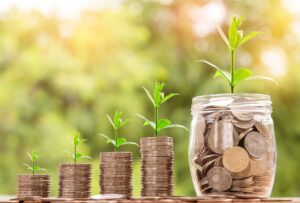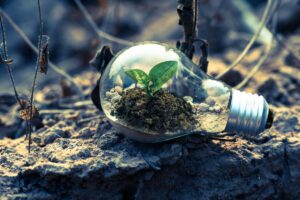In a global scenario increasingly aware of environmental challenges and the urgency of a transition to sustainable development models, the demand for new skills and professionals aligned with this vision has grown exponentially. The so-called ‘green skills’ and ‘green professions’ emerge as fundamental pillars for building a more resilient and ecologically responsible economy and society. This article will deepen the understanding of what these skills and professions are, their strategic importance, the challenges inherent in their training, and the trends that will shape the future of work in this context. We will explore how education and training can be catalysts for this transformation, the economic impact of these changes, and the public policies and initiatives that are paving the way for a greener future.
What Are Green Skills and Professions?

To understand the magnitude of the transformation underway, it is essential to define the central terms of this debate. Green skills are not merely a set of technical knowledge about the environment; They represent a fusion of skills, values, and attitudes that enable individuals to live, work, and innovate in ways that promote sustainability and resource efficiency. They range from the ability to sustainably manage natural resources and optimize energy efficiency to understanding circular supply chains and applying clean technologies. In essence, they are the skills needed to navigate and thrive in a decarbonized and regenerative economy.
On the other hand, ‘green professions’, or ‘green jobs’, are those occupations that directly contribute to the preservation or restoration of environmental quality. This includes a vast array of functions that aim to protect ecosystems, reduce energy, water, and material consumption, minimize waste generation, and mitigate greenhouse gas emissions. These professions are the backbone of the ‘Green Economy’, an economic model that seeks sustainable development, social inclusion, and the eradication of poverty, all while protecting natural capital. Practical examples of these professions range from renewable energy engineers and waste management specialists to sustainability consultants and architects focused on green buildings. The crucial distinction is that while green skills can be applied in any profession, green professions are intrinsically linked to positive environmental outcomes.
The Strategic Importance of Green Skills in the Current Scenario
The growing urgency of climate change, the scarcity of natural resources, and regulatory and social pressure for more responsible business practices have catapulted green skills to the center of discussions about the future of work and the global economy. Its strategic importance can be analyzed from several perspectives, which are interconnected and reinforce the need for massive investment in the training and development of these skills.
First, green skills are crucial for organizational resilience. In a world where climate and environmental risks are becoming increasingly prominent, companies that fail to adapt their operations and strategies to incorporate sustainability are at a competitive disadvantage. Professionals with green skills are able to identify and mitigate these risks, develop innovative solutions to environmental challenges, and turn threats into opportunities. This includes the ability to manage supply chains more sustainably, optimize energy and water use, and implement cleaner production processes. The management of risks and opportunities related to environmental, social, and governance (ESG) aspects is a core competency that permeates all green skills, making them indispensable for the longevity and success of any organization in the twenty-first century.
Secondly, the demand for professionals with green skills is on a meteoric rise in the job market. Reports from institutions such as LinkedIn and the International Labour Organization (ILO) consistently demonstrate that the hiring rate of talent with green skills outperforms the average of other areas. This demand is not restricted to sectors traditionally associated with the environment, such as renewable energy or waste management, but extends to industries such as finance, technology, manufacturing, construction, and agriculture. The transition to a green economy requires all sectors to reevaluate their operations and seek professionals capable of integrating sustainability principles into their daily functions. This means that a marketer, for example, may need green skills to effectively communicate a company’s sustainability efforts, while an engineer may apply them to developing more resource-efficient products.
In addition, green skills empower individuals to become agents of change. By acquiring these skills, professionals not only adapt to new market demands, but also become proactive in finding solutions to environmental challenges. They are able to innovate, develop new technologies and processes, and positively influence their organizations and communities. This ability to be a catalyst for sustainability is a significant differentiator in a job market that increasingly values social and environmental responsibility. Individual contribution, multiplied on a corporate and social scale, is key to achieving the sustainable development goals and combating the climate and biodiversity crises.
Finally, the importance of green skills also lies in their impact on innovation and competitiveness. Countries and companies that invest in the training and development of these skills tend to be more innovative and competitive on the global stage. The ability to develop and implement green technologies, optimize processes to reduce environmental impact, and create sustainable products and services not only generates economic value but also strengthens reputation and brand. Innovation driven by green skills can lead to the creation of new markets, reduced operating costs, and greater acceptance by consumers and investors who prioritize sustainability. In short, green skills are not just a trend, but an imperative necessity for long-term prosperity and sustainability.
Challenges in the Training and Development of Green Skills

Despite the growing awareness of the importance of green skills, their training and development face a series of complex challenges that need to be overcome for the transition to a green economy to be effective and inclusive. These obstacles range from educational infrastructure to the perception and engagement of professionals and organizations themselves.
One of the most pressing challenges is the knowledge gap and specific training. Currently, many educational institutions, from basic to higher education, have not yet comprehensively integrated sustainability and green skills topics into their curricula. This results in a workforce that often lacks the skills needed to meet the demands of the rapidly evolving green market. The lack of undergraduate and graduate programs focused specifically on areas such as renewable energy, circular economy, advanced waste management, or bioengineering, for example, creates a bottleneck in the supply of qualified professionals. In addition, continuing education and the requalification of professionals already in the labor market are also insufficient, leaving many without the tools to adapt to the new demands.
Another significant obstacle is the transition to low-emission production systems. This transition is not only technological, but also cultural and organizational. It requires companies to reevaluate their processes, invest in new technologies and, fundamentally, train their employees to operate in this new paradigm. The challenge here is twofold: on the one hand, there is the need to develop new skills to deal with innovative technologies and processes; on the other hand, there is the urgency of reskilling workers whose functions may be impacted by decarbonization and automation. Resistance to change, lack of investment in training, and difficulty in measuring the return on investment in green skills can slow this transition.
Awareness and engagement also pose a considerable challenge. Although sustainability is an increasingly present topic, not all professionals and organizations understand the depth and urgency of the need to develop green skills. Many still see sustainability as an additional cost or a niche responsibility, rather than as a strategic imperative that permeates all functions and industries. The perception that “there is no specific training for all green skills” can lead to inaction, when, in fact, many of these skills can be developed through short courses, workshops and practical experiences. It is essential to promote a culture of continuous learning and appreciation of green skills at all levels of the organization.
Additionally, the quality of technical education is a critical factor. For green skills to be effectively developed, technical and professional education must be of high quality, stimulating innovation, efficiency, and the ability to solve complex problems. In many countries, the infrastructure and resources to provide this type of education are still limited, which prevents the training of a sufficient number of professionals with the practical skills needed to work in sectors such as the installation of renewable energy, waste management or sustainable agriculture. Collaboration between the public sector, the private sector, and educational institutions is essential to overcome this barrier, ensuring that training programs are relevant and aligned with market needs.
Finally, the **speed of technological and regulatory change** poses a constant challenge. The field of sustainability is constantly evolving, with new technologies, regulations, and best practices emerging regularly. This means that green skills are not static; They need to be continuously updated and adapted. What is relevant today may not be tomorrow, requiring a commitment to lifelong learning and the ability to adapt quickly to new scenarios. Organizations and individuals need to be prepared to invest in reskilling and upskilling on an ongoing basis to stay relevant and competitive in the green labor market.
Trends and the Growth of Green Professions

The global transition to a more sustainable economy is not just a vision of the future, but a reality in full acceleration, driving the emergence and expansion of a wide range of professions that, until recently, were considered niche. Current trends indicate robust growth in the green jobs sector, with optimistic projections for the coming decades. This growth is fueled by significant investments in renewable energy, energy efficiency, waste management, sustainable agriculture, and other key areas of the green economy.
One of the most striking trends is the diversification of sectors that demand green professionals. Initially concentrated in areas such as the environment and energy, green professions are now spreading throughout the economic fabric. Wind and solar energy continue to be major employers, but the demand extends to sectors such as finance (with ESG analysts and impact investing specialists), information technology (developers of solutions for environmental monitoring and smart cities), civil construction (architects and engineers focused on sustainable buildings), and even marketing and communication (professionals who know how to communicate the value of a brand’s sustainability).
The emergence of **new professions** is another notable trend. As the green economy matures, new specializations become necessary. Examples include sustainable product designers, who focus on creating goods with a lower environmental impact throughout their entire life cycle; circular economy specialists, who work to minimize waste and maximize the reuse of materials; sustainability data analysts, who use big data to measure and optimize the environmental performance of companies; and environmental certification professionals, who ensure that products, processes, and buildings meet stringent ecological standards. These new roles reflect the complexity and breadth of the sustainability agenda.
The **skills required** for these green professions go beyond specific technical knowledge. While expertise in renewable energy, waste management or biotechnology is key, the market increasingly values a cross-cutting skill set. Green professionals need to have a sharp analytical profile to interpret environmental data and identify opportunities for improvement. The capacity for systemic understanding is crucial, as environmental problems are interconnected and require solutions that consider multiple social, economic, and ecological factors. In addition, complex problem-solving, innovation, interdisciplinary collaboration, and effective communication are essential skills for navigating and leading the green transition.
Among the **green professions on the rise**, the following stand out:
Ecologist and Biologist:** Essential for research, biodiversity conservation and development of nature-based solutions.
Sustainability Manager: Responsible for integrating sustainable practices into an organization’s operations and strategies.
Energy Efficiency Consultant:** Helps businesses and individuals reduce energy consumption and optimize resource use.
Environmental Engineer: Designs and implements solutions to environmental problems, such as water and waste treatment, pollution control, and soil remediation.
Sustainable Architect:** Specialized in the design and construction of buildings with low environmental impact, using eco-friendly materials and efficient systems.
Specialist in Renewable Energies:** Works in the development, installation and maintenance of solar, wind, hydroelectric energy systems, among others.
ESG Analyst:** Evaluates the environmental, social and governance performance of companies for investors and stakeholders.
Waste Manager:** Develops and implements strategies for the reduction, reuse, recycling and proper disposal of waste.
Environmental Certification Specialist:** Ensures that products, processes or systems comply with environmental standards and certifications (e.g. ISO 14001, LEED).
Not only do these professions offer promising career opportunities but they also play a vital role in building a more sustainable future, demonstrating that environmental concern can and should go hand in hand with economic development and innovation.
The Transformative Role of Education and Training in the Formation of Green Skills

The transition to a green economy and the consequent demand for green skills impose a profound reassessment of education and training systems around the world. Education, in its various forms and levels, emerges as the main driver for empowering the workforce of the future and ensuring that society is prepared for the challenges and opportunities of sustainability. The transformative role of education and training can be observed on several fronts.
First of all, **curricular adaptation** is fundamental. Educational institutions, from primary to tertiary education, need to integrate the principles of sustainability and green skills into their study programs. This doesn’t just mean creating specific courses on the environment, but infusing the perspective of sustainability into all disciplines. For example, a civil engineering course may incorporate modules on sustainable construction and eco-friendly materials; a management course can address green supply chain management and ESG reporting; and even humanities disciplines can explore the social and ethical dimensions of the climate crisis. This cross-cutting approach ensures that students, regardless of their area of specialisation, develop a holistic understanding of sustainability challenges and the skills needed to address them. The inclusion of technical and practical expertise, such as natural resource management, energy efficiency, and green technologies, should be a priority.
Second, the proliferation of specific training programs and bootcamps is crucial to reskilling and upskilling the existing workforce. Many professionals are already in the market and need to quickly acquire green skills to stay relevant. Initiatives such as the “Green Skills Passport” and the “Green Skills Academy” demonstrate the potential of these programs to empower young people and communities, often underserved, with practical skills in areas such as solar PV installation, sustainable agriculture, geographic information systems (GIS) applied to sustainability, and wind energy. These programs, often developed in partnership with industry, are agile and focused on market needs, filling gaps that formal education systems may be slow to fill.
In addition, continuing education is imperative. The field of sustainability is dynamic, with new technologies, regulations, and best practices constantly emerging. This means that green skills are not static; they require continuous learning and updating throughout their professional lives. Companies and governments should invest in online learning platforms, workshops, and certification programs that allow professionals to stay up to date and adapt their skills to new demands. The “lifelong learning” mindset is essential to navigate the complexity and speed of transformations that the green transition imposes.
Finally, the “transversal integration” of green skills in all areas of knowledge is a fundamental pillar. It is not just a matter of training “green specialists”, but of “greening” all professions. An accountant may need green skills to audit sustainability reports; an HR professional may need them to recruit and develop talent with a focus on sustainability; and a project manager can apply them to ensure that projects are executed in an environmentally responsible manner. This approach ensures that sustainability becomes a shared responsibility and that green skills are seen as essential competencies for all professionals, regardless of their area of expertise. Collaboration between educational institutions, governments, businesses, and civil society is vital to creating an educational ecosystem that fosters the development of these skills on a large scale, paving the way for a truly sustainable future.
The Transformative Economic Impact of Green Professions

The rise of green professions is not only a response to environmental imperatives, but also a powerful driver of economic transformation. Investment and growth in this sector generate a multifaceted economic impact, which manifests itself in job creation, boosting Gross Domestic Product (GDP), attracting investment, and regional development. Understanding this economic dimension is crucial to recognizing the strategic value of transitioning to a green economy.
One of the most direct and significant impacts is massive job creation. The transition to a low-carbon, more resource-efficient economy is labor-intensive, especially in sectors such as renewable energy, energy efficiency, waste management, and sustainable agriculture. Studies by organizations such as the International Labour Organization (ILO) and the United Nations Environment Programme (UNEP) consistently project the creation of tens of millions of new jobs globally by 2030, provided that adequate policies and investments are implemented. For example, investment in solar PV and wind power has been proven to generate significantly more jobs per unit of investment than fossil fuels, demonstrating that the choice of green technologies is not only environmentally superior, but also economically more advantageous in terms of job creation. These jobs are not limited to technical roles; They cover the entire value chain, from research and development to manufacturing, installation, maintenance and support services.
In addition to job creation, the growth of green professions drives GDP growth. The green economy, by promoting efficiency in the use of energy and raw materials, innovation in clean technologies, and the reduction of environmental externalities, contributes to a more resilient and sustainable growth model. The optimization of processes, the reduction of waste and the valorization of resources previously discarded generate economic value. Sectors such as renewable energy, for example, not only replace polluting energy sources, but also create new industries, supply chains, and markets, adding value to the economy. Decarbonizing the economy, while requiring upfront investments, results in long-term economic benefits, including less reliance on volatile fossil fuels and increased energy security.
Attracting investment is another crucial economic benefit. Companies and countries that demonstrate a strong commitment to sustainability and that have a skilled workforce in green skills tend to be more attractive to investors. Global financial capital is increasingly directed towards sustainable investments and ESG (Environmental, Social, and Governance), and the presence of a green skills infrastructure is an indicator of a business environment favorable to this transition. Additionally, innovation driven by green skills can lead to the creation of new products and services that meet the growing demand for sustainable solutions, opening up new markets and profit opportunities.
Finally, the growth of green professions has a significant impact on regional development and social inclusion. Decentralizing renewable energy production, for example, can create jobs in rural communities and regions that have historically been neglected by traditional industrial development. Reskilling workers from carbon-intensive industries to green roles can ensure a just transition, preventing unemployment and promoting inclusion. Additionally, focusing on local solutions to environmental challenges, such as waste management and urban agriculture, can strengthen local economies and create opportunities for small businesses and entrepreneurs. In short, green professions are not just about protecting the planet; They are about building a more prosperous, equitable, and resilient economy for all.
Public Policies and Initiatives to Foster Green Skills and Green Professions

The transition to a green economy and the training of a workforce with the necessary green skills cannot depend solely on individual initiative or the private sector. It is essential that governments, international organizations, and civil society act in a coordinated manner, implementing public policies and strategic initiatives that foster the development of these skills and the creation of green jobs. These actions are crucial to accelerate the transition and ensure that it is fair and inclusive.
One of the main fronts of action is the **government incentive and the formulation of educational policies**. Governments around the world are beginning to recognize the need to integrate green skills into educational curricula, from primary to tertiary education. This involves reviewing curriculum guidelines, developing specific teaching materials, training teachers, and creating funding programs for institutions that invest in education for sustainability. Initiatives such as those in the European Union, which encourage and support the education and training sector for a greener future, are examples of how public policies can direct the education system to meet the new demands of the labor market. In addition, the creation of tax incentives or subsidies for companies that invest in training their employees in green skills can accelerate the adoption of these skills in the private sector.
Another vital area is the **professional qualification and requalification programs**. Many workers, especially those in carbon-intensive sectors, will need new skills to adapt to the green economy. Governments and professional development agencies are implementing training and reskilling programs that aim to meet this demand. The “Pact for Skills” in Europe, for example, is an initiative that seeks to mobilize investments in training and reskilling for millions of people, with a significant focus on green skills. These programs can be developed in partnership with trade unions, industry associations, and businesses, ensuring that the training is relevant and meets the specific needs of each industry. Offering scholarships and funding for green skills courses is also an effective way to democratize access to this training.
The promotion of research and innovation is equally important. The development of new green technologies and the optimization of sustainable processes depend on a robust research and innovation ecosystem. Public policies that encourage research in renewable energy, circular economy, biotechnology, and other areas of sustainability are essential. This includes funding universities and research centers, creating technology parks and incubators for green startups, and promoting collaboration between academia, the private sector, and government. Innovation not only creates new green professions, but also enhances existing ones, making them more efficient and impactful.
In addition, international collaboration and the exchange of best practices are crucial. The transition to a green economy is a global challenge, and no country can tackle it alone. International organizations such as the ILO, UNEP and the OECD play a key role in collecting and disseminating data, identifying trends and promoting effective policies for the development of green skills and green jobs. Cooperation between countries can facilitate the adoption of common standards, the harmonization of certifications, and the exchange of knowledge and experiences, accelerating the transition on a global scale.
Finally, the integration of green skills into all professions is a long-term goal that should be supported by public policies. This means going beyond explicitly green job creation and seeking to “green” all functions. Policies that encourage corporate education in sustainability, the inclusion of green skills criteria in recruitment and selection processes, and the appreciation of professionals with this mindset in all areas can accelerate this integration. The goal is for sustainability to become a transversal competence, present at all levels and sectors of the economy, ensuring that the workforce is fully prepared for the challenges of the 21st century.
Building the Future with Green Skills and Green Professions

The journey towards a sustainable future is intrinsically linked to society’s ability to develop and integrate so-called ‘green skills’ and to foster the growth of ‘green professions’. As explored in this article, these skills and occupations are not mere passing trends, but rather fundamental pillars for building a more resilient, equitable, and ecologically responsible global economy. The urgency of climate change and the growing awareness of the finiteness of natural resources have accelerated the demand for professionals capable of innovating, adapting and leading the transition to development models that respect planetary boundaries.
Green skills, which range from technical knowledge in renewable energy and waste management to behavioral skills such as systems thinking and collaboration, are essential for individuals and organizations to successfully navigate the complex landscape of sustainability. They empower professionals to identify environmental risks, develop innovative solutions, and turn challenges into opportunities for growth and value. The demand for these skills transcends traditional sectors, permeating all areas of the economy and becoming a competitive advantage for any professional.
In parallel, green professions emerge as the backbone of the green economy, creating millions of jobs and driving economic growth on a global scale. From environmental engineers and renewable energy specialists to sustainability consultants and ESG analysts, these occupations not only contribute directly to environmental preservation, but also generate economic value, attract investment, and promote regional development. The economic impact of these professions is undeniable, demonstrating that sustainability is a vector of prosperity and not an obstacle to progress.
However, the full realization of this potential depends on overcoming significant challenges, especially with regard to the training and development of these skills. The gap between market demand and the supply of skilled professionals, the need for curricular adaptation in educational institutions, and the urgency of reskilling programs for the existing workforce are obstacles that require continued attention and investment. The transition to low-emission production systems and awareness of the importance of green skills at all levels of society are crucial to accelerate this process.
To pave the way for a truly sustainable future, it is imperative that governments, the private sector, educational institutions, and civil society act in synergy. Public policies that encourage education for sustainability, professional qualification and requalification programs, investments in research and innovation, and the promotion of international collaboration are essential. The transversal integration of green skills in all professions, transforming sustainability into a universal competence, is the ultimate goal.
Ultimately, the training of green skills and the promotion of green professions represent more than an adaptation to the new environmental and economic realities; They are a strategic investment in the planet’s human and natural capital. By empowering the workforce with the skills they need to build a greener future, we are not only protecting the environment but also creating new opportunities, driving innovation, and ensuring prosperity for present and future generations. It is a path that requires commitment, collaboration, and a long-term vision, but one that will undoubtedly lead to a more sustainable and equitable world.

Sem comentários